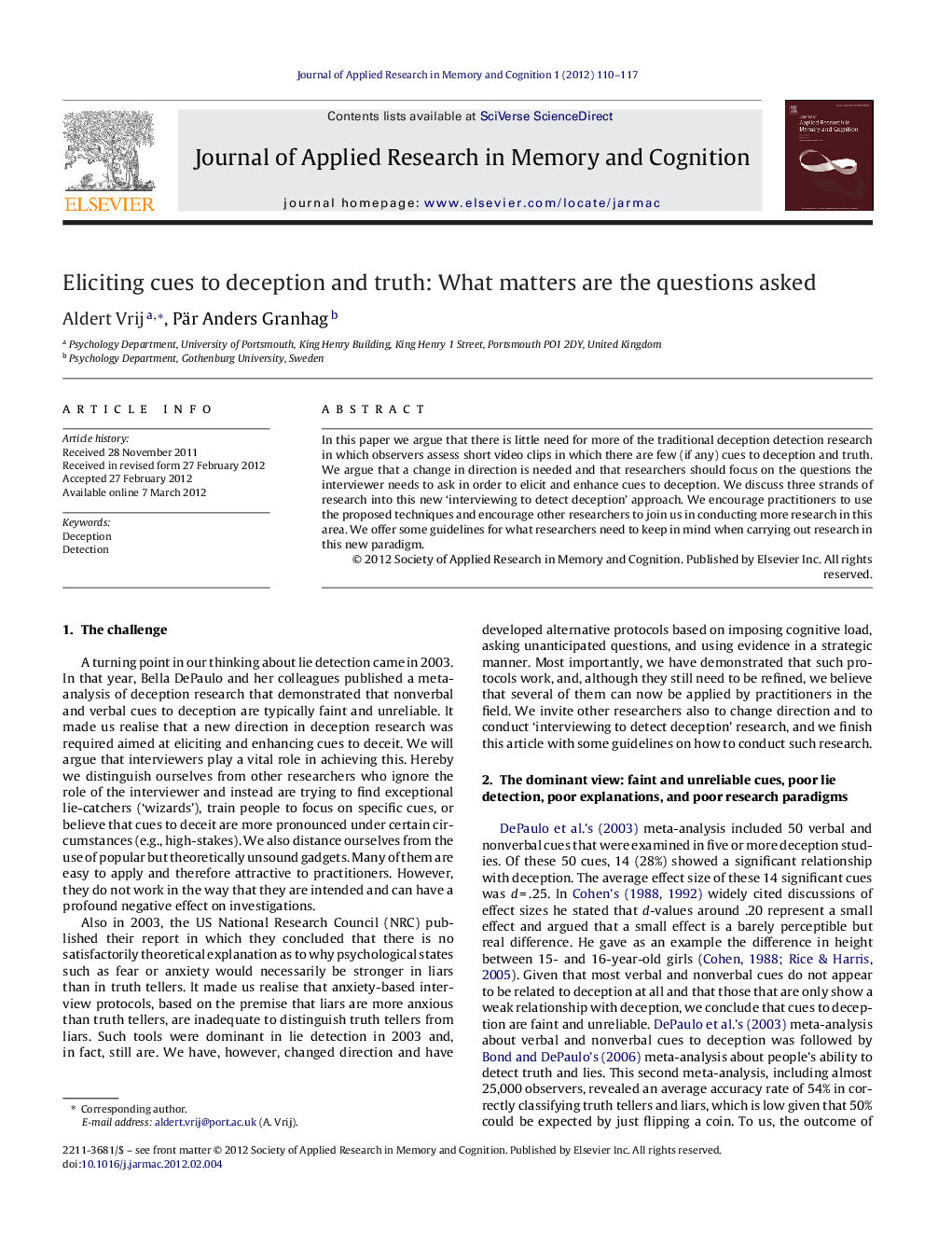| Article ID | Journal | Published Year | Pages | File Type |
|---|---|---|---|---|
| 881659 | Journal of Applied Research in Memory and Cognition | 2012 | 8 Pages |
In this paper we argue that there is little need for more of the traditional deception detection research in which observers assess short video clips in which there are few (if any) cues to deception and truth. We argue that a change in direction is needed and that researchers should focus on the questions the interviewer needs to ask in order to elicit and enhance cues to deception. We discuss three strands of research into this new ‘interviewing to detect deception’ approach. We encourage practitioners to use the proposed techniques and encourage other researchers to join us in conducting more research in this area. We offer some guidelines for what researchers need to keep in mind when carrying out research in this new paradigm.
► There is no more need for lie detection research in which observers watch video clips with few cues to deception. ► Researchers should focus on interview protocols that elicit and enhance cues to deception. ► Imposing cognitive load, asking unanticipated questions, and using evidence in a strategic manner are examples of such techniques.
